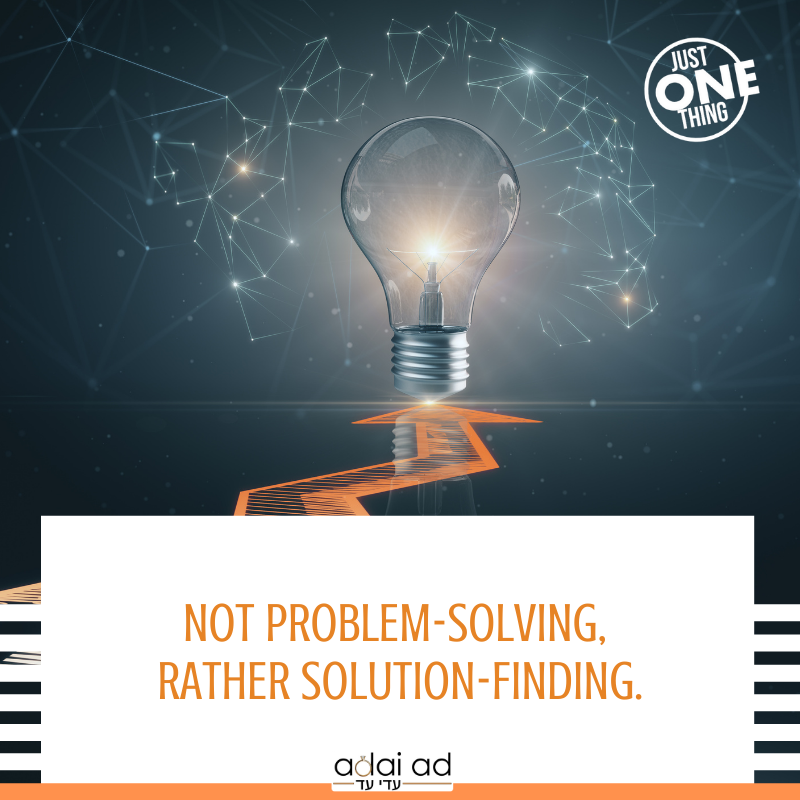While ultimately the goal is to have a better future, the process of getting there can make a huge difference. In the problem-solving model, we often get stuck by thinking and talking about a situation in a problem-focused way, paying much attention to the (causes in the) unwanted past. This can be demoralizing, and then hope and the chances of finding a solution for that problem are smaller.
Talk more about finding potential solutions than focusing on solving the problem. Focusing on problems makes you an expert in what’s wrong. Rather, focus on solutions and what can be right.
The language and mindset of solution-finding are much more positive and hopeful. Solution-talk, with its focus on goals and solutions, automatically ensures choices and change. “What might we do here?” “What is going well (even if it is tiny) that we can build on?”
Problem-solving looks to the past that has some problems; this often brings elements of guilt and regret. Solution finding looks forward; this brings feelings of opportunity, hope, and optimism.
Another key difference between solution-finding and problem-solving is that solution-finding is the beginning of a hopeful process, and problem-solving is the end of a broken one.
Focus on solutions and possibilities instead of problems and impossibilities.


